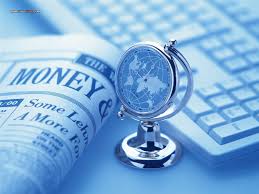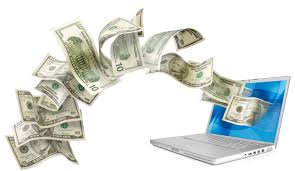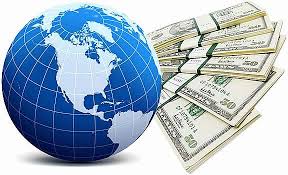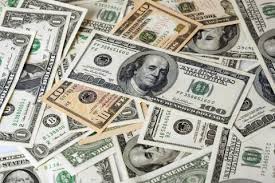HK Dollar's Peg Gotta Go
Even Tsang Is Worried
Having voiced concerns over Hong Kong's competitive edge amid the robust economic development in the mainland and after calling for better financial and economic integration, Chief Executive Donald Tsang Yam- Kuen said Hong Kong could consider pegging its currency to the yuan. But he insisted that the existing currency peg to the greenback would remain the SAR's long-term policy. He said he also hoped that yuan bonds would eventually be issued in Hong Kong, helping foster closer financial ties with the mainland and allowing SAR traders to prepare for the full liberalization of the currency. With the yuan being allowed to appreciate and rise above the key level of eight to the US dollar last Monday, Tsang said the current peg remains the long-term policy though the government could still study the feasibility of a link between the HK dollar and the yuan. But he noted that the free convertibility of the yuan must be the prerequisite and that there is still a long way to go before this currency link could be realized.
The problem with the yuan is its convertability and acceptance. There are still a lot of restrictions with respect to the transactability of the currency. The second thing is the lack of a deep bond market denominated in yuan. The third, is HK's economy has very little to do with the economy of mainland China. Unless there is a huge convergence of both economies, it is silly an preposturous to consider linking the HK dollar to the yuan. Having said that, the HK dollar remains quite overvalued, although the weakness of the US dollar over the past 6 months have helped the HK dollar somewhat. Longer term, the HK dollar has to go weaker, either to repeg to 10 US dollar to 1 HK dollar (from the present 7.8 to 1) or to repeg with a basket of currencies including the yuan, Euro, yen and dollar. Below are excerpts from a much earlier blog on the HK peg and its deficiencies, which was published as an article in AsiaTimes Online:
Time to go for Hong Kong dollar peg
In a recent TV interview, Hong Kong Monetary Authority (HKMA) chief executive Joseph Yam asserted that Hong Kong will retain its own currency even if the Chinese yuan continues its rising trend and becomes the stronger of the two units. The managed float of the yuan has seen it appreciating, albeit painfully slowly, for the past several months. There is a general belief that the yuan will continue its slow appreciation ride, so as not to jeopardize China's hurtling economic growth, and to protect foreign investors' confidence for the longer term. During the 1997-98 Asian financial crisis, Hong Kong suffered little initially when compared with such countries as Malaysia, Thailand, Singapore and Indonesia. Although the territory's peg to the US dollar cushioned the negative effects well for the first few months, the drawbacks of the dollar-peg policy began to become apparent when other Asia-Pacific currencies dropped. By 1999-2000, most free-floating Asia-Pacific currencies had in effect been devalued 25-50% against the US dollar. All the while, the Hong Kong dollar remained the same.
A free-floating currency allows a country and its industries to realign their competitiveness when necessary. Although sharp currency devaluations and corrections are hard to stomach, they are sometimes necessary to "deflate and reflate" economies. By sticking to the peg, Hong Kong basically lost out completely in pricing power compared with the rest of the region. Salaries and rentals became so much more expensive than elsewhere that foreign companies inevitably diverted their investments and head-office operations. Even Hong Kong companies had to outsource whatever they could to southern China. Unemployment, a nosedive in property prices, and the phasing out of non-competitive industries were part and parcel of the resulting upheaval. If Hong Kong had floated or, better still, re-pegged its currency in 2000, a lot of hardship and jobs could have been saved.
A re-peg from HK$7.8 per US$1 to a 10:1 exchange rate back in 2000 would have done wonders for the economy, and prevented numerous suicides and personal bankruptcies. When an economy lacks the ability to adjust to spectacular economic changes elsewhere, this will take its toll on people, companies and asset values one way or another. The powers-that-be in Hong Kong lack the political will to devalue the Hong Kong dollar as most of them are beholden to the city's economic magnates - no one who is asset-rich would want to see his cash and fixed assets in Hong Kong dollars devalue by 15-20% overnight. Plus, there is no way to devalue gradually - just the hint or rumor of possible devaluation would send share prices plummeting rapidly and tons of funds fleeing. Any devaluation or re-peg has to be done with fewer than two or three people knowing about it, or it will never work.
Despite the practical difficulties, the need to revalue must be faced, unless Hong Kong can come up with a convincing answer to the question: What does Hong Kong do so well that it can compete with Singapore, Malaysia, and Thailand despite 20-40% higher costs? To oversimplify, Hong Kong basically makes money three ways: (1) tourism and tourism-related activities, (2) shipping and services, and (3) stocks and property. The last of these will never grow if the first two are not healthy, so what do the first two sectors need in order to remain competitive? In 2000, Hong Kong's tourism sector was hammered because everything in the city seemed dramatically overpriced. And the shipping sector has been slowly losing ground to less expensive ports in southern China and elsewhere. So the logic of a re-peg or float becomes overwhelming. Re-pegging or floating the currency would act as a lever to rebalance the economy's competitiveness vis-a-vis the rest of the world - leading to a slower hemorrhaging of jobs to southern China. Unfortunately, since nobody wants to see his property values dropping by 30% in US dollars, any re-pegging or devaluation would take great political will and economic astuteness. Imagine having to defend the move to an irate public and corporate heads who in effect lost 20-30% of their net worth. Suppose the head of the HKMA announced out of the blue that as of midnight, the Hong Kong dollar would be re-pegged at HK$10 to the US dollar. The newspapers would have a field day bashing both the head of the HKMA and politicians in general. Heart-rending stories would appear about an 80-year-old woman who wanted to send HK$10,000 to her granddaughter in mainland China for medical treatment - how tragic that she didn't do it yesterday! But the positive effects - though less newsworthy - would not be long in appearing. Share prices would rise to a new level, and foreign investors would be more than happy to pour in additional funds. Foreign property buyers would be much more attracted to Hong Kong. Foreign companies would be more willing to send expatriate staffers to the city; more exhibitions and conferences would choose the territory; and so on.
Are there other options? Yes. For example, one could eliminate the Hong Kong dollar completely and use the Chinese yuan instead. But this is not likely to happen within the next 20 years; it will be a long time yet before the yuan is a globally recognized currency in the same way that the US dollar, the euro and the Japanese yen are. Recognition, transactability, and free movement of the currency lead to acceptance, and the yuan is far from achieving these. Another option would be to peg the Hong Kong dollar to the yuan - again, for the same reasons just cited on the shortcomings of the yuan, that is not going to happen either. There will be a real need to link up with the yuan if (and only if) the two economies converge; but right now and for the foreseeable future, the economy of Hong Kong is vastly more advanced than that of China as a whole. Right now the Hong Kong dollar is still about 5% more expensive than the yuan. But it is very likely that the yuan will surpass the Hong Kong dollar in terms of US dollars within the next 12 months. Then, the media will begin to discuss the loss of face for Hong Kong, and questions will surface on the need to re-peg the Hong Kong dollar, float it, or peg it to the yuan. Currency soothsayers, take note.
skip to main |
skip to sidebar















tips, tricks, business, news, information, services, business, SEO, internet, websites, blogs, business, news, health, facebook, twitter, automotive, online marketing, unique, funny, zodiac, sport
Blog Archive
-
▼
2006
(308)
-
▼
May
(35)
- China A-Shares / Banks / Bad DebtsThe Bigger Pictu...
- UEM World-DisneyInexperience ShowingAs reported in...
- Snippets, Snipes & Snides29 May - 31 May 2006Las V...
- Bursa, Mesdaq & Bonus IssuesGood Move By BursaBurs...
- Lion Forest IndustriesAttractive Trading PatternsL...
- Top Hedge Funds EarnersMind Boggling NumbersYou ne...
- Asian Currencies On TenterhooksThe dollar's slide ...
- Sand In My FaceCasino IR Goes To Las Vegas SandsWe...
- WorldCup2006Brazil vs South AfricaIt is just befor...
- Snippets, Snides & Snipes22 - 26 May 2006Oops, UEM...
- Malaysia's Most Caring Employer AwardCannot Be A P...
- Disneyland In Johor?Trumping Singapore (Again)Prim...
- NetherlandsWorldCup2006The team is young, many wou...
- Events Searching For ReasonsThe Poor Man's Analyst...
- Mega M&A Deals In MalaysiaA Precursor Of Things To...
- Market Risk - Asia PacificMalaysia & India Example...
- Finally Some Smart CommentsDr Hilmi Yahaya, The Vo...
- Rebuttle To Comments By SC & BursaDesignation, Dis...
- HK Dollar's Peg Gotta GoEven Tsang Is WorriedHavin...
- My Problems Are Bigger Than YoursAbberations Revea...
- Asian Markets Opening CommentsThursday 18 MayBours...
- 2006 Top Buys #7Unexpected By ManyI cannot tell yo...
- KLSE Market Opening CommentsWednesday 17 May - Its...
- Is There A Commodities' Bubble?You Bet - Sell Your...
- KLSE Closing CommentsTuesday 16 MayWell, it was cl...
- KLSE Market Opening CommentsTuesday 16 MayWell, at...
- Microsoft's Unfathomable Share Price Running Out O...
- Asian Market Readings15 May 4.00pm Monday Tarot Ca...
- An Open Letter To Securities CommissionNeed To Ret...
- The Case For Japanese EquitiesGenuine Recovery Fin...
- Financial Decision-Making Mistakes
- Are We Bubbling Yet?Are Asian Markets Frothy...Inf...
- Quibbles Over Top Executive Pay
- Tallest Buildings As Leading Indicators
- Hey, Dawg ... What's In A Name?Googling For Google...
-
▼
May
(35)
No comments:
Post a Comment